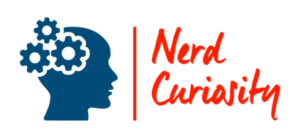When tackling the realm of product management, you may wonder if a knack for coding is a prerequisite for the role. The responsibilities of product managers are multifaceted, entailing leadership, strategic vision, and clear communication to steer products toward success. While a grasp of technical lingo might empower you to engage more deeply with developers, the fundamental skills that truly define your proficiency relate more to overseeing the product lifecycle and managing your team than to programming itself.

Your role as a product manager often involves navigating a fine balance between business objectives, user needs, and the feasible application of technology. While coding skills could bolster your toolkit, it’s important to recognize they are not the cornerstone of effective product management. Insights from industry trends indicate that while technical knowledge can translate to higher compensation, it is the ability to articulate your vision and harmonize the efforts of diverse teams that amplifies your worth in the field.
However, the tech environment is ever-evolving, and staying conversant with the basics of coding could help you gain an empathetic understanding of the challenges your engineering team faces. It’s not about being able to single-handedly rewrite the codebase but about fostering trust and a shared language within your team. Your success as a product manager hinges on how well you comprehend the various aspects of your product and convey its value proposition, not just on how many programming languages you can write.
The Role of Coding in Product Management

In the dynamic field of product management, understanding the impact of coding can elevate your ability to oversee the product’s life cycle effectively.
Understanding the Technical Aspects
Your grasp of coding can substantially enhance your technical understanding. It empowers you to appreciate the complexities of product development from the ground up. With a technical background, you can make well-informed decisions that align with the developers’ capabilities and project constraints.
Importance of Technical Communication
Fluency in coding languages bolsters your communication with the technical team. This skill ensures clarity in conveying requirements and eases collaboration, making it possible to bridge the gap between non-technical stakeholders and developers.
Balancing Technical and Non-Technical Skills
While not a strict necessity, coding competence complements your non-technical skills. A technical product manager can navigate both worlds, using their technical knowledge to guide a diverse team and optimize product strategies. Having both skills means you can foresee potential issues and work alongside your team to find the most effective solutions.
Essential Skills for Product Managers

As you navigate the role of a product manager, mastering certain core skills will enhance your ability to lead with vision and make well-informed decisions. Let’s explore critical abilities that you should cultivate.
Strategic Thinking and Vision
Cultivating your strategic thinking is crucial; it enables you to set a clear vision for your product. You must decipher market trends and use this knowledge to make your product stand out. A deep understanding here solidifies your role as a visionary, guiding your team and stakeholders towards a common goal.
Decision-Making Capabilities
Your role calls for making informed decisions confidently and swiftly. You’ll weigh different perspectives and data points, making choices that will determine your product’s direction. Strong decision-making skills ensure that you can prioritize effectively and communicate your reasoning to stakeholders.
The Power of Problem-Solving Skills
Problem-solving is integral to your success as a product manager. Address each challenge with a composed approach, collaborating with your team to find innovative solutions. Your problem-solving prowess is a beacon that showcases your leadership and keeps your team aligned and motivated.
Technical Proficiency in Product Development

As you embark on the journey of product development, it’s essential to understand how technical proficiency enables better collaboration, feasibility assessment, and technical prioritization within your team.
Collaboration with Engineering Teams
Technical knowledge is a bridge that connects you and the engineering team. Understanding the basics of coding can improve communication and foster mutual respect. It’s like speaking the same language—even a basic fluency can facilitate more productive dialogues about what’s possible in the realm of a technical product.
Incorporating Technical Feasibility
Your aptitude for technology plays a significant role in shaping product strategy. You need to appreciate technical feasibility to ensure that the vision for your product aligns with what can realistically be achieved. Think of it as a reality check that balances innovation with practicality within the confines of your budget and other resources.
Prioritization of Technical Constraints
You’ll often find yourself weighing different features against technical constraints. Prioritizing these is a delicate act, one that requires insight into the technical complexity and the impact on the product roadmap. Your ability to parse these details can mean the difference between a smooth launch and a tangled knot of missed deadlines and unhappy developers.
Navigating Career Paths in Product Management

Selecting a career path in product management can be dynamic and diverse. Your journey can range from enhancing your technical expertise to mastering strategic business skills.
Education and Continuous Learning
A robust educational foundation sets the stage for a successful career in product management. While formal qualifications in business or related fields are beneficial, it’s the commitment to continuous learning that truly keeps you ahead. Dive into online courses for both foundational and advanced knowledge, such as those offered by Udacity, to stay abreast of industry trends and methodologies.
Transitions from Technical Backgrounds
If you’re pivoting from a technical role, like software development, leverage your understanding of programming languages and development processes. This technical backdrop can be a unique asset, facilitating deeper conversations with technical teams and possibly leading to higher compensation as noted by industry studies.
Advancing Without Coding Expertise
It’s a misconception that all product managers must be proficient coders. Rather, key competencies lie in your ability to bridge gaps between business needs and technology. You can ascend to leadership roles without expert coding skills, provided you have a keen grasp of the technical aspects of product creation, as highlighted by ProdPad.
Innovative Technologies and Product Management

In the realm of product management, embracing innovative technologies is indispensable to staying competitive. As you navigate through this dynamic field, understanding how to incorporate cutting-edge tools and methodologies will bolster your ability to create irresistible market offerings.
Adopting Emerging Technologies
To stay ahead, you must adopt emerging technologies early. Think about how AI can automate laborious tasks or how Python might streamline data analysis. Integrating platforms that use APIs to connect various software can also sharpen your product’s edge. Remember, leveraging these technologies effectively can amplify your problem-solving skills.
Creating Market-Adaptive Products
Market responsiveness is key when developing new products. By applying JavaScript or other flexible languages, you enhance adaptability, making it easier to tweak products based on user feedback. Understand the user experience inside out; it’s the lifeline of your product. Stay current, pivot quickly, and your products will resonate with the pulse of the market.
Evaluating Market Research and Data
Finally, make market research and data your compass. Drill down into analytics to understand trends and preferences. Use data to inform decisions, but also trust your human intuition to fill in the blanks. It’s in this interplay between analytics and instinct that innovative product management really shines.
